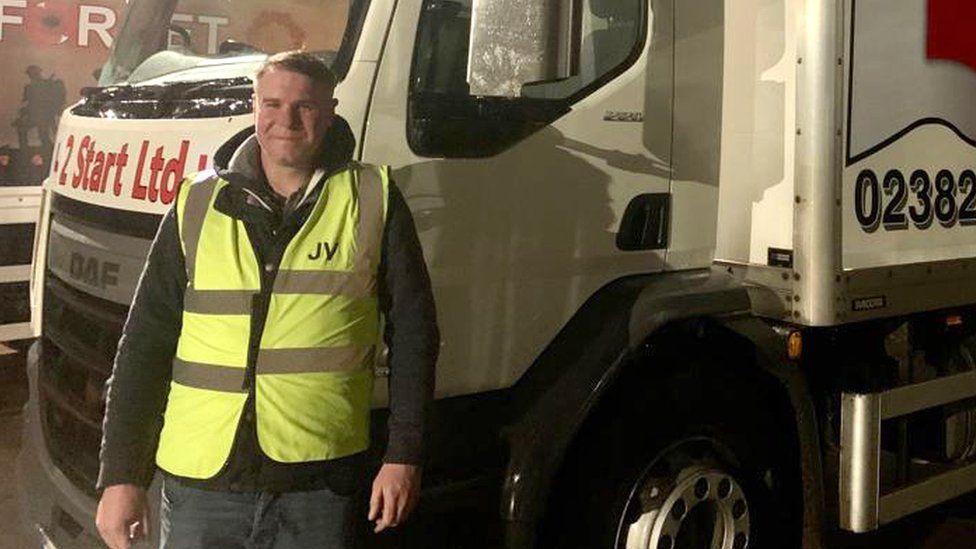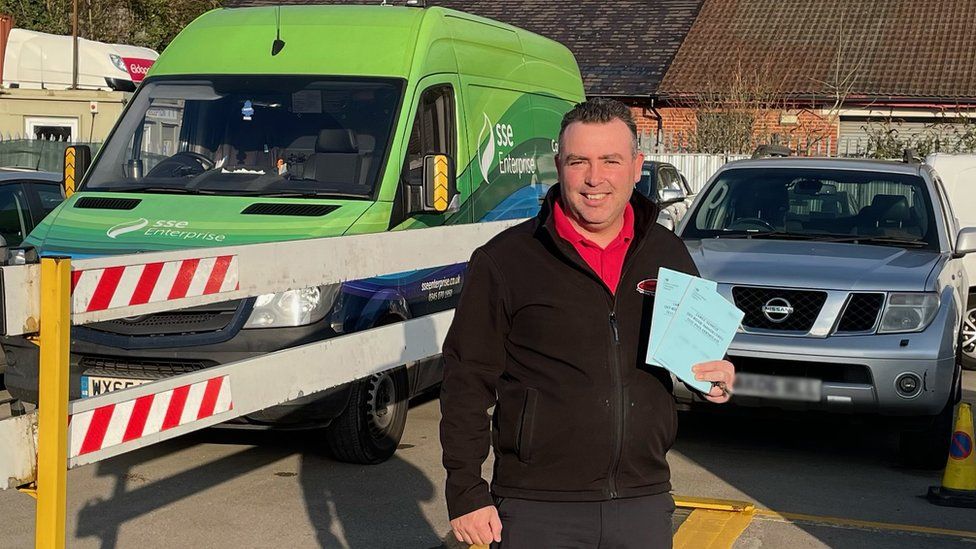Empty shelves in UK supermarkets due to fruit & veg shortage
Due to a wave of poor weather across Europe and Africa, supermarket shelves have been left empty...
Thank you for visiting us!
This website does not completely support on Internet Explorer. Please use another browser.
Apologies for inconvenience
By: BBC News on Dec 12, 2021 9:04:04 PM


The government has announced it is boosting the number of places available on its skills scheme to try to address a chronic shortage of lorry drivers.
It has increased funding for its HGV Skills Bootcamps from £17m to £34m, allowing them to offer 11,000 places instead of 5,000.
But one training firm, 2 Start, told the BBC the system could not cope.
"We are fully booked up until April and we are not alone," said managing director Paul Moon.
"Up and down the country, people are fully booked up."
The bootcamps, which started recently, provide taxpayer-funded courses that the government says are "designed to train drivers to be road-ready and gain their licence".
It says the first drivers will be on the road from March next year.
However, according to Mr Moon, many schools are booked up already past then.
It's estimated that the UK needs about 100,000 HGV drivers - with existing shortages made worse by the pandemic, tax changes, Brexit, an ageing workforce, low wages and poor working conditions.
The scarcity of lorry drivers is not a new problem, but the effects of recent shortages have disrupted the supply chains of businesses and led to customers finding some items unavailable in supermarkets and shops.
During the various coronavirus lockdowns, a backlog was created of people wanting HGV training.
That backlog started to clear by the summer, but then the fuel crisis in September acted like a "massive ad campaign for us", with "a rush of people" wanting to obtain a licence, he said.
"It's a nice position for us to be in," he adds, "but we can't get hold of enough vehicles."
There is no shortage of instructors at the moment, but there is a shortage of available lorries to train people in, says Mr Moon.
When he spoke to the BBC, he had travelled from southern England to Middlesbrough in North Yorkshire to buy a new Iveco truck.
Normally, he orders new lorries straight from DAF - but if he ordered one today, he says he would be unlikely to get it before 2023.
"It's mainly to do with Covid," he says, with manufacturers having problems getting parts and "getting trucks built and out the other end" of factories.
This has led to "panic buying" of HGVs, he said.
He himself has two trailers on order which will not be ready until July. This has had a knock-on effect in the second-hand market too, he says, so it is more difficult to pick up trucks.
Another bottleneck is in testing, according to 2 Start centre manager Joe Vickers.
"The DVSA [testing agency] has not been particularly quick," he says. "We have not been offered that many tests."
The government has recently tried to ease the backlog in tests by allowing training companies such as 2 Start to take part of the test.
Hopefully this will ease the situation in time, says Mr Vickers, because at the moment, "it's definitely not under control."

The rush to get an HGV has been partly driven by people wanting to change careers during the pandemic.
Matt Luty from Selbourne in Hampshire is one of those people and he is taking his test to drive rigid lorries.
He worked in farming for 18 years, including as a spray operator, but recently got a job for a pharmaceutical company.
The firm wants him to drive lorries, so it is paying for his course.
"I like being out and seeing things, not stuck in an office," he says. "I'm more at home being in a vehicle."
He's looking forward to being able to drive to other countries in Europe, and says he'll get to spend more time with his wife and nine-year-old son than when he was working on a farm.
"We discussed it quite a bit," he says. "I'm actually going to be at home a lot more."
In addition, the pay "is a little bit better", Matt says.
Elizabeth de Jong, policy director at industry body Logistics UK, said: "There hasn't yet been an increase in the number of drivers employed.
"And that would be the most important indicator, to give us that satisfaction that things are improving.
"However, we are seeing these green shoots of indicators that in a few months, when more drivers have been trained, that there will be an improvement in overall driver numbers."
She said that the logistics industry was "doing everything it can" to make Christmas deliveries.
"With the driver shortage showing signs of easing, the government and DVSA must continue to build on its work to speed up the backlog of tests, to ensure these new drivers can enter the workforce as quickly and as safely as possible," she added.
The Driver Academy Group, a consortium of Logistics UK, Manpower and HGV training firm HGVC, said it would train 2,160 candidates in the bootcamps.
Successful applicants will be booked onto courses as soon as there is availability, the consortium said.
The government said that more than 2,000 people had expressed an interest in the skills bootcamp.
Education Secretary Nadhim Zahawi said: "HGV drivers are vital to keeping this country moving.
"It's brilliant to see the first people with their hands on the steering wheel as they head towards new well-paid careers in the industry."
Providers have been contracted to deliver courses between December 2021 and November 2022, the Department for Education said.
Due to a wave of poor weather across Europe and Africa, supermarket shelves have been left empty...
I thought I had seen most things in my 31-year career in the oils and fats world, but the last two...
The HGV driver shortage has eased significantly in recent months, as almost half the drivers who...